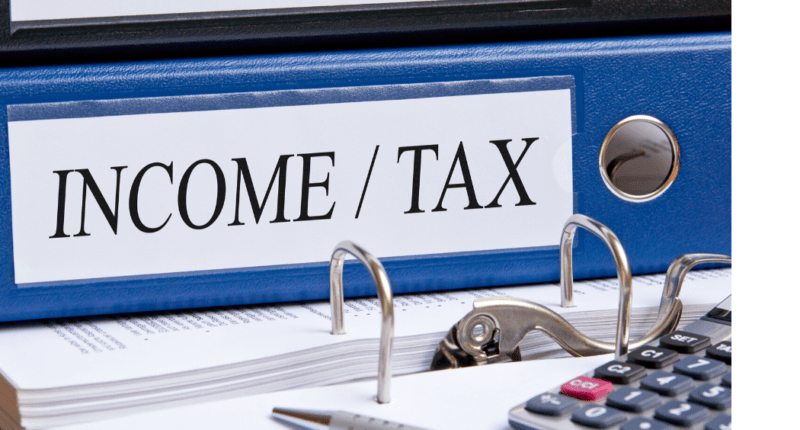Income tax is one of the most important sources of revenue for the government. We should know that the income tax we pay helps run the country’s economy. So, you can give yourself a tap on the back if you are a taxpayer as you contribute to the overall development of our country.
In this article, we are going to talk about the income tax implications on your financial market investments.
Investments in the stock market can be broadly categorised between:
- Delivery based trading or investments
- Intra-day trading
Delivery-based trading or investments
If you have invested in equity shares or equity-related mutual funds and sell these shares before 12 months starting from the date of purchase, it will be considered a short-term capital gain. Short-term capital gain in equity shares is taxable at the rate of 15% (plus applicable cess).
If your cumulative short-term equity transaction results in loss, i.e., if the total sale consideration of all your short-term equity investments is less than their total cost in a financial year, then it will be regarded as a short-term capital loss. This loss can be carried forward for the next eight financial years. This means that the taxpayer can offset this short-term capital loss against the gains earned in the subsequent eight years. For instance, if Mr X has incurred a short-term loss of Rs.1 lakh in FY 2020-21, this loss can be carried forward to the subsequent eight years until it gets completely absorbed from any capital gain.
However, it should be noted that the short-term capital loss can be set off against short term or long-term capital gains only. Such loss cannot be set off against any other income like salary, house property, etc.
Further, if you have invested in equity instruments and sell them after 12 months of holding starting from the date of purchase, it will be considered long-term capital gains (LTCG). Long-term capital gain in equity shares is taxable at the rate of 10% if the total LTCG in one financial year is more than Rs.1 lakh. Hence, if your cumulative LTCG is less than Rs.1 lakh in a financial year, then no tax will be payable under the long-term capital gain head.
In the same way, if you have incurred cumulative long-term capital loss, the same can be carried forward to the next eight years. However, it should be noted that the long-term capital loss can be set off only against long-term capital gains. You cannot even set off this loss against short-term capital gains due to the fair logic that the Income Tax Act does not allow to set off low rate taxable income (10% in case of LTCG) against high rate taxable income (15% in case of STCG).
It should be noted that the income tax department classifies the gains from selling shares as either ‘business income’ or ‘capital gains’ income. Let us see the basis of classification between these two income heads.
If a taxpayer holds the equity shares as ‘stocks’, selling these shares will be regarded as ‘business income’. The gains will be taxable per the normal tax slab rates applicable to the taxpayer if classified as business income.
Classification of equity market gains between ‘business income’ or ‘capital gains’ is highly disputed. So, as a taxpayer, you should be aware of the circumstances under which the income tax department will consider your income by selling equity shares as business income.
The income tax department has tried to clarify the basis of classification of it as business income through many circulars. A summary of these pointers is as below:
- If the taxpayer shows the shares held as ‘investment’ in his books of account, it will be treated under capital gains. If the shares held are shown as ‘stock in trade’ in the books of accounts, it will be treated as business income. Hence, every investor needs to maintain books of accounts and show these as ‘investments’ so that they are taxed at lower tax rates under the capital gain head.
- If you own shares in the name of a Company or a partnership firm, then the entity’s charter document (like MOA for companies or partnership deed in case of firms) should not have a clause mentioning the treatment of equity shares as ‘stock in trade’. If the charter document mentions it as ‘stock’, it will be treated as business income.
- The income tax department will also consider the frequency and volume of the purchase and sale of the equity shares. For instance, if you invest Rs.10 lakh into the financial market but execute a turnover of around Rs.1 crore in a financial year. Such high volume construes that you carry the transactions as your’ ‘business” and not as an ‘investment’. So the number of shares traded or the quantum of trade would also decide the classification of income. The lesser you purchase and sell, the higher are your chances of classifying it as an asset and reducing your tax liability. If there are more purchase/sale transactions, then it will be taxed as regular business income.
- The holding period of securities can also be a deciding factor for the classification of income. Suppose you bought some shares today and sold them within three days, then it shows your intent of regular trading. However, if you sold these shares after six months, you intend to invest for a longer term. Hence, the duration of your open trade will also decide the classification.
- Lastly, the trader or investor’s intention can also be considered to classify whether the transaction was carried out as a regular trade or for long-term wealth creation.
Intra-day trading
In intra-day trading, the purchase and sale of the equity shares happen on the same day, i.e. the trader does not deliver the shares. The trader intends not to carry out a trading business but to benefit from the price fluctuation affected by demand and supply. Hence, intra-day trading transactions are referred to as ‘speculative business income’ under the Income Tax Act.
Such speculative income will be added to total income and taxable at the normal tax slab applicable to the taxpayers. For instance, the normal tax slabs for individual taxpayers will be according to the old or new tax regime, as the case may be. Whereas, for corporates, the tax rate in force shall apply to the speculative income.
In case of loss in intra-day trading, it can be carried forward for the next four years. Here, the carry-forward period is less due to the speculative nature of the income. Also, it should be remembered that speculative loss can be set off only against speculative income. Meaning it cannot be set off against any other income head.
Investing in debt mutual funds or bonds
If the investment in debt instruments like debt mutual funds and bonds (except zero-coupon bonds) is sold after holding them for less than 36 months, then the gains will be considered short-term capital gain and taxable as per the normal tax slab.
These instruments’ losses can be carried forward for the next eight years and adjusted against any other income.
If the investment in debt instruments is sold after holding for more than 36 months, it will be considered long-term and taxable at the rate of 20%. Loss from the long-term gains from debt instruments can also be carried forward for the next eight years; however, they can be adjusted only against the long-term capital gains.
Remember that indexation benefit is not available to bonds and debentures even in case of long-term gains. The benefit of ‘Indexation’ is available in terms of long-term gains under the Income Tax Act. Indexation means adjusting the asset’s cost for the years of holding with the ‘Inflation’ index issued by the government from time to time.
Taxability on dividend income
If you earn dividend income on the shares classified as ‘investments’, the income generated from these shares will be taxable at the normal tax slab rates under ‘income from other sources’.
However, suppose the shares on which dividends income is received are classified as stock in trade. In that case, the dividend income will be taxable under ‘business income’, again at a normal slab rate.
Individuals will not get impacted by the taxability of dividends in either case mentioned above, as the tax slabs would be the same. However, companies will face the impact due to this segregation.
Tax on derivatives
If you gain from equity, currency or commodity derivatives, it will be regarded as non-speculative income per the Income Tax Act. The gains from derivatives will be taxable at the normal tax slabs applicable to the taxpayer.
Hence, if you are actively trading in the financial market, you should keep the volume and frequency of these transactions as low as possible. They do not get classified as business income as tax payable would be higher than capital gain tax. As a trader, you should reduce your tax liability by classifying the selling of stocks as ‘investment’.
Join our Telegram channel to keep getting updates on all things finance.
For any clarifications/feedback on the topic, please contact the writer at jyoti.arora@cleartax.in

I am a Chartered Accountant by profession with 4+ years of experience in the finance domain. I consider myself as someone who yearns to explore the world through travelling & Reading. I believe, the knowledge & wisdom that reading gives has helped me shape my perspective towards life, career and relationships. I enjoy meeting new people & learning about their lives & backgrounds. My mantra is to find inspiration from everyday life & thrive to be better each day.





